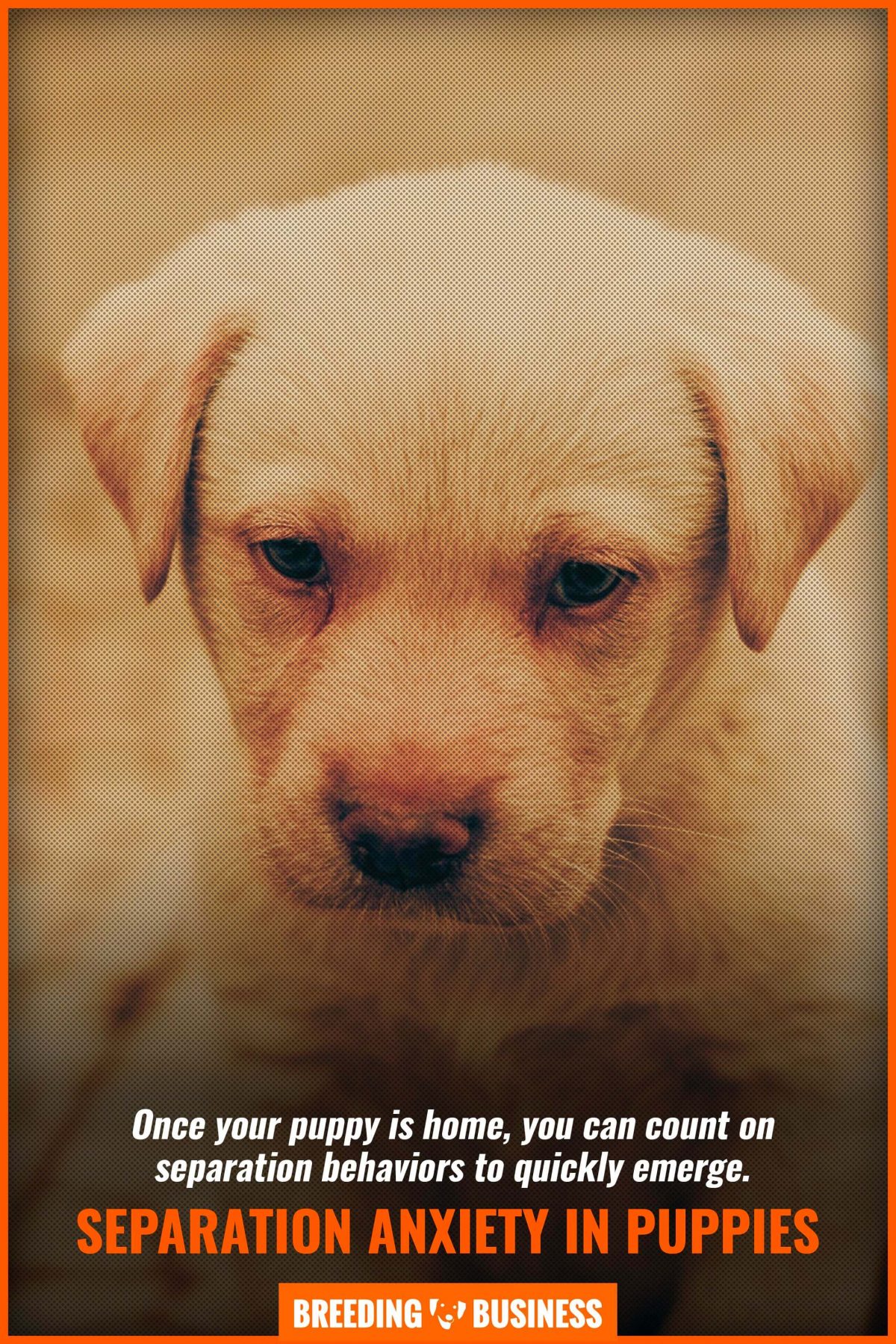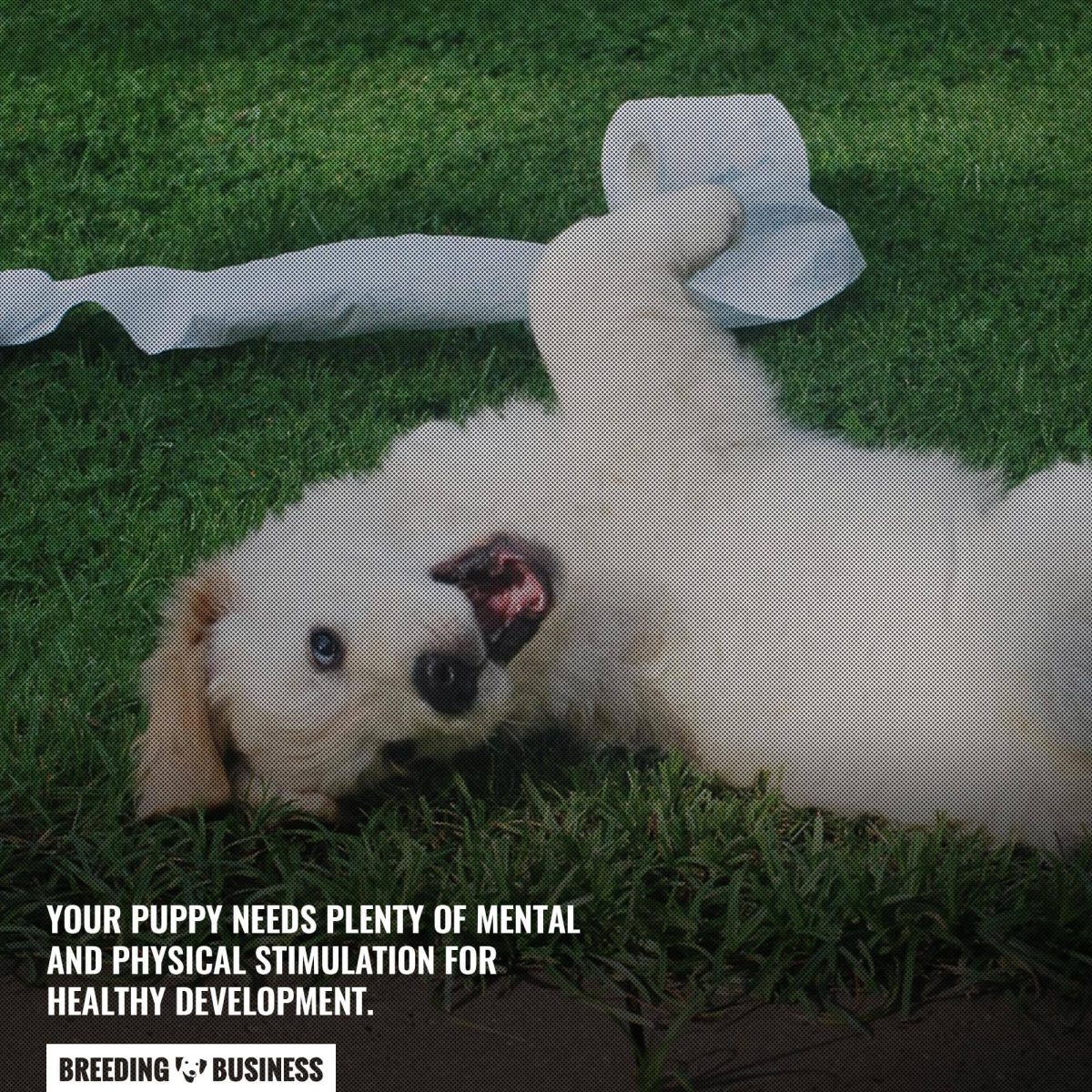Many first-time breeders worry about the process of dog litter separation. When is the best time to separate puppies? Do puppies remember their families? And what are the consequences of litter separation for the puppies? By separating your litter at the right time, you can ensure a smooth transition for your puppies as they move on to their new homes.
Puppy litter separation typically begins after 8 weeks. However, it is just as plausible to separate a litter at 12 weeks old. Regardless of their age, a separated puppy must be allowed time to adjust to life in their new home. To find out how to help your puppy to adjust, read on!
Right Age for Dog Litter Separation
Most litters are separated between the ages of 8 weeks and 12 weeks old. Most vets agree that 8 weeks is the minimum age for litter separation. At this age, a puppy is eating solid food, is fully mobile, and should be well-socialized with their littermates.
In contrast, some breeders prefer to keep their puppies for 12 weeks. For some breeders, this is a great way to have full control of a puppy’s socialization periods. For others, this is a way to ensure that small and toy breeds are as emotionally and mentally mature as possible before heading off to their new homes. So which age is right for puppy litter separation? There is no definite answer. While 8 weeks is the minimum, 12 weeks guarantees good emotional and mental development, as long as the breeder makes sure to socialize their puppies well.
Do Puppies Feel Sad When They Are Separated from Their Litter?
It is difficult to say if puppies feel sad when separated from their siblings. What we do know is that puppies undergo an adjustment period due to the massive change. In this period puppies become stressed and anxious before they settle down. Newly-separated puppies may cry and whine. This behavior during the adjustment period is normal. With lots of love and care, your new puppy will settle into their new home before you know it. Any sign that they might miss their siblings will soon be history.
Some pet behaviorists suggest that separating a litter of puppies is better than keeping them together. Littermate syndrome is a non-scientific term referring to behavioral problems that occur when siblings are brought up together. According to this proposed syndrome, puppies who live together into adulthood become highly co-dependent, exhibiting extreme anxiety when separated. These puppies may fail to bond with their human family as strongly as other puppies if they do at all. At social maturity, puppies might even begin fighting with each other. With this, it is important to know that there is little scientific research about this syndrome. This label warrants deeper discussion and clarification.
Puppy Separation Anxiety and How to Deal With It?
Once your puppy is home, you can count on separation behaviors to quickly emerge. Your pup might cry when you are out of sight, follow you around the house, and want to be picked up and held. They will also be restless and easily frightened at night, reflecting difficulty with falling asleep. Although these behaviors can be distressing for new owners, it is important to know that they are completely normal for a new puppy. How you handle these behaviors will influence your puppy’s adjustment and integration into the family.
For the first few days, it’s important to keep your home calm and quiet. No matter how excited the family is to have their new furry friend, crowding your puppy and making lots of noise will not help them to settle in. At the same time, make sure that your new pup receives lots of attention from the family. You should also set a routine for feeding, walking, and toilet breaks for your puppy to help your puppy’s adjustment.

How to Handle Puppies Leaving Their Littermates?
Your new puppy is going through a huge change when they arrive at your home. Not only are they away from their siblings and mother, but this new environment is full of new smells, sights, and sounds. You must make adjustments to accommodate your new furry friend. This includes bringing a keepsake from their litter, encouraging socialization, and offering lots of quality playtime.
Bring an Object from the Litter
Since puppies are so scent-oriented, it will help to provide a blanket or toy that smells like your puppy’s family. When you pick up your new puppy, bring a clean blanket with you, and ask to rub the blanket on the dam.
Having this dam-scented blanket will help your pup to feel more secure in their new home. You may also ask the breeder for a toy that your puppy’s mother and siblings have played with to bring an extra source of the scent. Once your puppy is home, make sure to place the scented blanket in your puppy’s crate, or drape it over the top.
Socialize Your Puppy
Your puppy has spent the first 8 weeks of life socializing with their mother and littermates. Now that your pup is in your care, it’s your responsibility to continue with socialization. At 8 weeks old, your puppy has just 4 more weeks until their critical socialization period comes to a close. You must commit to introducing your new pup to new people and other dogs during this period to avoid behavioral problems later in life.
You must socialize your puppy even if they have not got all of their vaccinations yet. To begin, invite friends and family to your home, take your puppy to a friend’s house, and introduce your puppy to healthy, vaccinated dogs. It also helps to take them on car rides, even if the ride is just around the block. When walking your unvaccinated puppy, make sure to avoid animals’ urine and feces as well as areas where you are likely to find such things.
Offer Lots of Playtime
Your puppy needs plenty of mental and physical stimulation for healthy development. Offering lots of playtimes will also help to distract your pup from the stress of leaving their littermates. Make sure to introduce your puppy to a wide range of stimulating toys! When choosing which toy to give to your pup, make sure that it does not pose a choking hazard to your little one. Their toys should not be small enough to swallow, should not have any sharp points, and should be durable enough to withstand persistent chewing.

Dog Litter Separation – FAQ
Got any more questions about dog litter separation? Feel free to refer to read through the below commonly asked questions. Remember, if in doubt about your litter’s health, always ask your vet for advice.
It is difficult to determine if a puppy feels sad when separated from their siblings, but what we do know is that separation initially causes stress and anxiety. During this adjustment period, puppies will whine, cry, howl, and refuse to settle as they come to terms with this huge change in their life. However, with extra time, comfort, and care, most puppies quickly settle down, and any sign that they were sad about their separation soon fades.
Your puppy is likely to struggle more with separation if you do not make accommodations for their anxiety. Be sure to provide a safe, welcoming, and fun environment for your new puppy. This includes providing a secure crate, blankets that smell like the puppy’s mother and giving plenty of attention for the first few days.
There is evidence both for and against adopting two puppies from the same litter. Some behaviorists argue that littermate syndrome can arise when siblings are brought up together. In some cases, it seems that two puppies raised together will socialize with each other so much that they do not feel the need to interact with their human family, or even other dogs. In short, the bond between the two siblings is enough for them. This can make training them more difficult.
If you choose to adopt two puppies at the same time, it’s best to adjust your care to prevent behavioral problems later on. For example, you should crate train your puppies separately, train them individually, and play with them separately. In doing this, you give each puppy the space to be who they are, encouraging healthier development.
Separating bonded dogs can cause stress and anxiety for both dogs. A “bonded pair” is a doggie duo that, for whatever reason, is very emotionally attached. Any pair of dogs can become a bonded pair if they have spent a significant amount of time with one another. This is especially true for dogs who have lived together from a very early age. As such, dogs who have lived together from puppyhood need care and time to process the loss of their close friend. As they mourn the separation, dogs may become withdrawn, nervous, and even show signs of depression.
Many shelters will advise against adopting a pair out separately to avoid the stress and anxiety that separation can cause. However, it is not always possible to rehome a pair together, and some dogs must be separated in order to have better lives. If possible the separation should begin gradually. This might involve separate walks, playing with the dogs separately, and generally keeping them apart for short periods.
According to a 1997 study, dogs might be able to recognize their puppies later in life depending on several factors. In the study, mother dogs were able to recognize their puppies at two years old. Siblings could only recognize each other if they had lived together, whereas dogs living alone seemed unable to recognize their siblings. A 1999 study found similar results. Dogs separated from their mother for around 7 months spent more time reacting to their mother’s scent than the scent of other dogs. This suggests scent-mediated kin recognition.
With both of these studies in mind, dogs may recognize their puppies after being separated. We also know that this recognition occurs through scent. What we do not know is how long this recognition might last.
Depending on whether two dogs are a bonded pair, it may or may not be advisable to separate them. While separating a bonded pair can be done, it causes a lot of stress for both dogs and can even be traumatic. If two dogs are not closely bonded, separation should not be a major issue, although the dogs may still experience stress and confusion as a result of this change.
Puppy litter separation is an inevitable part of life for most puppies. Separating puppies is a stressful process for our furry friends, but with a little love and support, the adjustment period can run smoothly. Separated puppies should be played with, comforted, and socialized as they settle down in their new homes.

One comment on “Dog Litter Separation – How To Handle Puppies Leaving Their Littermates”
I got my 8 week old puppy today & she’s been hiding under my bed all day. I went outside & when I came in she was under the couch. I lay with her, left some trails of kibble so she eats but she goes to the mirrored closet doors & cries. When I enter the room she runs under the bed. What mire can I do to try & calm her?